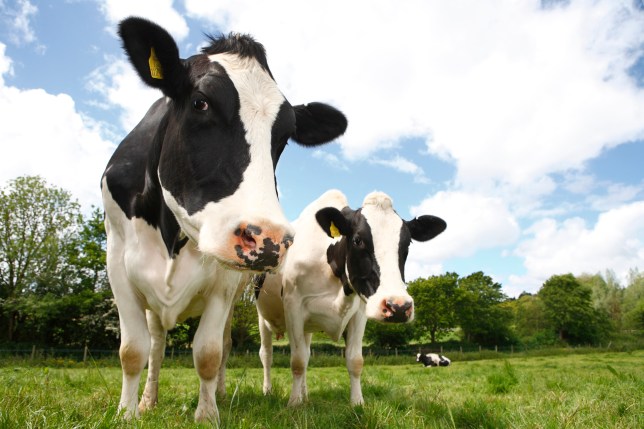A new strain of animal-borne virus is expected to spread across England, experts have warned, as livestock farms face devastating impact, Belfast Telegraph reports.
An animal disease risk assessment following an outbreak that began in England last autumn warns that the virus is highly likely to be reintroduced from northern Europe, where it is circulating.
This virus is an animal disease that affects cattle, sheep, as well as goats, deer and llamas. Its symptoms include a blue and swollen tongue, fever, reduced milk yield and in the most severe cases, death. It does not affect humans or food safety.
The virus is spread through the bites of midges and although there is currently no evidence of midges circulating in Britain, the government has warned that the insects could be wind-borne long distances from mainland Europe.
A new strain of bluetongue known as BTV-3, which appeared in the Netherlands in September 2023, was first identified in England in November. Since then, 126 cases have been reported in four counties – Kent, Norfolk, Suffolk and Surrey – with seven sheep and 119 cattle affected.
Farmers are being urged to remain vigilant and monitor their animals frequently and to make sure their livestock and land, as well as up-to-date contact details, are registered with APHA in case of an outbreak.
Farmers are now calling for a vaccine to be developed after one received emergency approval in the Netherlands following the discovery of more than 6,000 cases of infection with the new strain, known as BTV-3.
Livestock farmer David Barton – chairman of the National Farmers Union (NFU) Livestock Council – said farmers were “keen to protect their livestock” but were unsure about the vaccine approved in the Netherlands.
There is currently no vaccine available in the UK against the BTV-3 strain of the virus, although a new vaccine has been approved for emergency use since early May in the Netherlands and Belgium.
Chief veterinary officer Dr Christine Middlemiss said:
“Our robust surveillance systems show we have now entered the period where biting midges are more active, and we know that the likelihood of bluetongue virus entering Great Britain is increasing. Despite the increase in midge activity, the current risk of transmission has not changed, but I would urge farmers to remain vigilant and report any suspicions to the Animal Plant Health Agency.”
She also added:
“Bluetongue virus does not pose a threat to human health or food safety.”
Biosecurity minister Lord Douglas Miller said that once the risk of transmission increased, free bluetongue tests would be offered to livestock owners in high-risk counties. He added:
“We are actively engaging with vaccine manufacturers on the development of a BTV-3 vaccine for use in the UK.”
